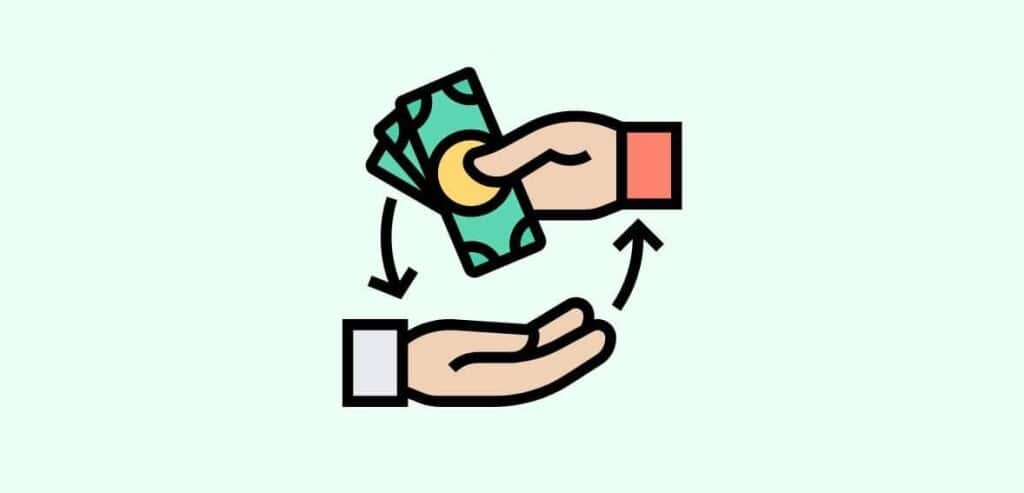Chime is a leading provider of fintech services. It offers comprehensive banking solutions alongside features such as fee-free checking accounts and early access to direct deposits, cementing its position as a cornerstone of the industry. Like other fintech mobile apps, Chime users sometimes face transactional issues, such as unwanted charges, fraud transitions, or processing errors. Therefore, it is essential to know how to dispute Chime transactions.
This comprehensive guide will discuss the specifics of chargebacks and disputes within Chime, what they mean, common scenarios leading to chargebacks, ways to prevent them, steps to take if you come across one in your Chime account, and more!

Image source
Can You Dispute Chime Transactions?
Chime is a fintech company that provides banking services through its website and mobile application. When Chime users disagree with a merchant about a particular transaction conducted via Chime, it is referred to as a Chime dispute. Such disputes may occur due to errors in the transaction, like a wrong amount in the invoice or suspicions of fraudulent behavior. Occasionally, disputes arise when merchants fail to fulfill their commitments.
Can you dispute any transaction with Chime? Yes. Like traditional banks, Chime uses Visa credit and debit cards, which means any transaction made with a Chime account falls under the Electronic Funds Transfer Act rules. In your Chime app, you can dispute most transaction types. However, it’s important to note that Chime does not accept disputes for certain transaction types, particularly those associated with specific Chime features.
If you have a dispute, Chime will investigate. They gather details from both you and the merchant to determine what happened. This investigation can take 45 to 90 days, depending on the kind of transaction and the nature of the dispute. If Chime needs more than ten business days ( 20 business days for new accounts) to resolve the issue, they might temporarily credit your account.
What is Chime’s Fraud Protection Policy?

Chime is committed to safeguarding the security of your account. The company offers several layers of protection to ensure your money is secure. First and foremost, the FDIC insures your deposits in Chime up to a maximum of $250,000. This implies that the government would safeguard your money when Chime fails.
In addition to FDIC insurance, Chime offers a zero liability policy for its debit cards through Visa. This policy ensures that cardholders are not responsible for any unauthorized transactions made with their Chime debit card.
Chime has also included fingerprint identification and two-factor authentication in the app to enhance account security further. Fraudulent actors will find it far more difficult to access user accounts with the two-factor authentication function, which demands users to submit two different forms of identification in order to log in.
Additionally, Chime allows you to act quickly to safeguard yourself if you feel that your account information has been hacked. You can log into the Chime app and deactivate transactions or Chime debit cards. This will guard against any fraudulent use of your card and provide you with peace of mind regarding the security of your funds.
Reasons to Dispute Chime Transactions

Image source
You should dispute the charge immediately if you notice an error discrepancy in your Chime account transactions. Chime offers a straightforward procedure for doing this on its Visa cards. The first method, using the Chime app, is quite simple. Open the app and go to the View Transactions section on the screen. Look for the “Problem With This Transaction” button, click on it, complete the form that appears, and follow the instructions to start your dispute process. You can call their support directly if you do not use the Chime app.
Chime allows you to dispute a transaction over the phone. Call Chime at (844) 244-6363 if you need to raise a dispute. This number is your go-to for transaction issues, disputes, or any unrecognized activity on your account.
However, gathering all possible evidence that proves the charge’s invalidity, such as documented proof, is essential before initiating a dispute. Chime will only investigate disputes that have compelling claims. Therefore, providing thorough and complete information is crucial. Additionally, confirming that you have tried to resolve the matter with the merchant before initiating the dispute is mandatory.
When disputing a transaction, be prepared with various documents and information, such as:
- Invoices or receipts related to the transaction.
- Shipping and delivery details, including the tracking number and confirmation email
- Any communication with the merchant about the transaction in question
- Photos or any description of the merchandise
- Any evidence supporting your dispute
- Proof of attempts to cancel the transaction
Gathering these details will help streamline the dispute process, making it easier for Chime to assist you.
What Are the Valid Grounds for a Refund?

Legitimate grounds for disputing transactions with Chime are merchant errors, fraud, or third-party fraud. If your issue falls within these categories, Chime may approve your dispute. Here are some valid dispute reasons :
1. Merchant Error
A chargeback due to the merchant error occurs when the cardholder doesn’t receive the product they anticipated or paid for according to the agreed purchase terms with the merchant or if the merchant incorrectly charges the cardholder for an unauthorized, duplicate, or incorrect transaction.
Instances of a merchant error may include:
- Charge a customer multiple times for the same item
- Fail to process a transaction promptly
- Ship an order to an incorrect address
- Process a transaction without proper authorization
- Deliver an item that doesn’t match the customer’s order
- Incorrectly process a credit transaction as a charge due to using the wrong transaction type
2. Merchant Fraud
Merchant fraud is a type of criminal activity when individuals or groups exploit payment systems to steal from businesses and consumers. This can happen when merchants violate codes or regulations or fail to deliver goods or services as promised.
If you encounter such a situation, it is advisable to resolve the issue directly with the merchant. However, if the seller remains unresponsive even after multiple attempts, you can contact Chime to initiate a dispute and seek further assistance.
3. Third-Party Fraud:
If you come across a Chime transaction that you didn’t authorize or recognize, it typically falls under Criminal Fraud. This indicates that a third party has gained unauthorized access to your account or used your account details to conduct transactions.
Upon discovering any unauthorized activity, promptly report it to Chime for investigation and verification. Additionally, take immediate action to change all your passwords and PIN codes, including those for your social media accounts and email addresses. In cases of lost, misplaced, compromised, or stolen cards, Chime will deactivate them. As a precautionary step, they also disable international transactions. According to consumer law, you’re typically not liable for losses exceeding $50 once fraud is confirmed.
How to File a Dispute with Chime?
Now that you’ve gathered all the necessary information, initiating a dispute with Chime is time. So here’s a rundown on disputing a transaction with Chime:
1. Filing the Dispute
When disputing a transaction, the first step is identifying the specific transaction you want to dispute. Reasons for disputes can range from fraud and billing errors to unauthorized charges. It’s important for customers to regularly review their credit card statements and promptly report any irregularities to their bank. To dispute a charge with Chime, follow these steps:
- Log into the Chime app.
- Select “View Transactions.”
- Locate the charge you wish to dispute.
- Choose “Problem with this transaction?”
- Fill out the provided form and submit it.
2. Let Chime Investigate
After providing Chime with all the necessary information regarding the disputed transaction, it’s important to give them some time to investigate. This investigation will help them determine whether the transaction should be disputed. It’s important to remember that if Chime determines the transaction cannot be disputed, they will cancel it. However, if they find it disputable, they will proceed to the next step of the dispute resolution process.
3. Provisional Credit
If Chime needs more investigation time, they may provide provisional credit to the customer’s account as a temporary relief measure. This credit aims to ease any immediate financial strain while Chime investigates. Typically, the provisional credit amount matches the disputed transaction’s value, ensuring that customers are not financially burdened during the investigation.
Customers should expect to receive this temporary credit within ten business days.
4. Issuing Chargeback
If Chime confirms the validity of the dispute, a chargeback process will be initiated. This involves retrieving the funds from the merchant, and the temporary credit becomes permanent for the customer. However, if the bank favors the merchant, the provisional credit is reversed, and the funds are returned to the merchant.
Why Is Your Request for a Chargeback Denied?
Although it often varies depending on individual circumstances, several factors can invalidate your appeal.
- Excessive refund requests resembling spam.
- Confusion between disputes and standard refunds.
- Forgetting about transactions or purchases.
- Failing to seek resolution through the merchant’s customer service.
- Transactions initiated by another household member.
- Disregarding the merchant’s return policy.
- Convenience-driven disputes are unrelated to genuine issues.
To improve your chances of success in a Chime dispute, it’s essential to avoid these situations unless you have valid reasons. Following the correct dispute procedure and maintaining a rational approach can strengthen your case. Persistently disputing Chime transactions without justification may be construed as first-party or friendly fraud, which can have consequences despite its non-malicious intent.
Steps to Take if Your Chime Dispute Appeal is Denied
Even though Chime often denies dispute appeals, this doesn’t mean you’re out of options. If you believe your dispute is valid, here’s what you can do next:
- Contact Chime Customer Service:
Begin by calling Chime’s customer support line to request the reopening of your dispute. Additionally, ask for a written explanation for the denial of your appeal.
- File a Consumer Complaint:
Consider filing a complaint with relevant government bodies. For instances of fraud, the FBI Cyber Crimes Division may assist. Alternatively, the Consumer Financial Protection Bureau (CFPB) or the Better Business Bureau (BBB) can be resources for resolving financial disputes. Be prepared with all necessary documentation, including receipts, transaction details, and any correspondence with Chime.
- Understand Chime’s Status:
Recognize that Chime is not a traditional bank, which means the process for handling disputes may differ from those of conventional banks.
- Consider Arbitration:
Arbitration is a last-resort option. This process is akin to a court trial, where a lawyer will represent Chime, and an arbitrator will act as the judge. Your case might be resolved based on the provided documents, or you might need to testify. Arbitration is conducted by an independent arbitrator, offering a neutral judgment. Typically, arbitration can take 6-8 months and be performed remotely, presenting a fair opportunity to present your case.
Conclusion
Chime is a digital bank that offers great convenience to its users. However, disputes may arise at times. Understanding the valid grounds for disputes and Chime’s fraud protection policies is important. Taking prompt action, documenting everything thoroughly, and following the dispute procedures can increase the chances of a favorable outcome.
In case of a dispute denial, considering regulatory channels or arbitration may provide alternative paths for resolution. To safeguard your financial interests in the ever-changing digital banking landscape with Chime, it is vital to remain vigilant and proactively engaged.
Frequently Asked Questions
How can you resolve a Chime dispute?
To resolve a Chime dispute, respond promptly to the dispute notification. Provide accurate and comprehensive information to support your position. Keep detailed records of all transactions through your Chime account, including receipts and invoices.
Is it possible to reverse transfers on Chime?
Yes, you can reverse a pending Pay Anyone transfer on Chime, and the funds will be instantly returned to your Chime Checking Account. However, it's important to note that you can only cancel a Pay Anyone transfer if it is still pending. Once a Pay Anyone transfer is completed, it cannot be reversed.
How can I withdraw a dispute claim on Chime?
Suppose Chime has yet to initiate a chargeback process (meaning we have yet to request the merchant to reimburse the disputed transaction amount). In that case, you have the option to withdraw your dispute claim directly through the Chime app by following these steps:
-Go to the Home screen and select Disputes.
-Choose the specific claim you wish to withdraw.
-Click on the three dots located in the upper right corner.
-Select Request to remove transactions.What happens to the funds from a dispute if my Checking Account is closed?
If your Checking Account is closed while you're disputing transactions and you've been approved for temporary or final credits for your claim, the following applies:
1- You will be issued an additional check for the credited amount.
2- If the credits are granted before issuing the first check, you will receive one consolidated check for the amount.

